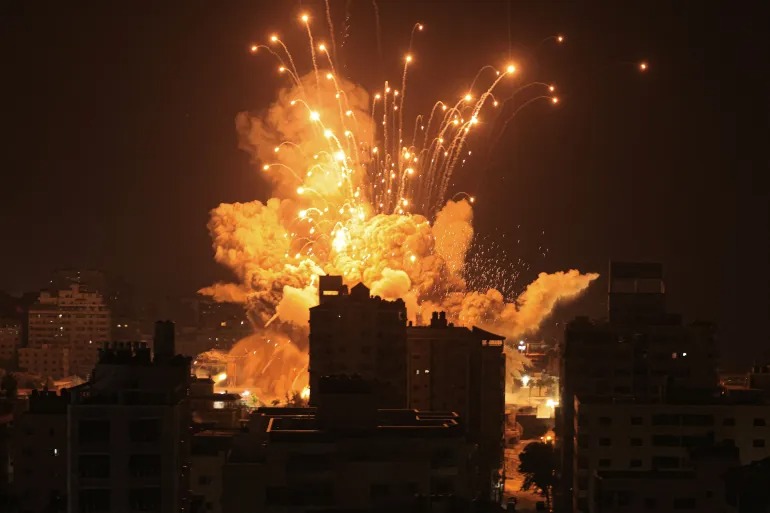In the midst of a devastating conflict between Israel and Gaza, the United Nations Security Council (UNSC) convened an emergency closed-door session to address the crisis. The urgent meeting aimed to reach a consensus on a joint statement concerning the escalating violence. However, after approximately 90 minutes of deliberation, the UNSC failed to achieve unanimity, leaving the international community grappling with the ongoing crisis.
US Pushes for Strong Condemnation of Hamas, Faces Opposition
The United States, a key player in the UNSC, urged council members to issue a strong condemnation of Hamas, the Palestinian group responsible for launching an assault on Israeli towns and taking hundreds of people hostage. The conflict has already claimed the lives of at least 1,100 people, with Israel retaliating by declaring a state of war and launching attacks on densely-populated areas in Gaza, resulting in hundreds of casualties.
Senior US diplomat Robert Wood expressed disappointment after the session, acknowledging that while many countries had condemned Hamas’s attacks, unanimity remained elusive. Wood’s remarks also alluded to Russia’s stance, as relations between the country and the West have strained since its invasion of Ukraine.
Diplomats Hope for Broader Focus Amid Escalating Conflict
During the UNSC meeting, diplomats, particularly those led by Russia, advocated for a broader focus in addressing the crisis, going beyond a simple condemnation of Hamas. A joint statement necessitates consensus among the council’s 15 members, but differing viewpoints made reaching an agreement challenging.
Russia’s UN ambassador, Vassily Nebenzia, emphasized the need for an immediate ceasefire and meaningful negotiations, echoing a long-standing call by the Security Council. Nebenzia pointed out that the conflict’s persistence was partially due to unresolved issues.
The United Arab Emirates, which normalized relations with Israel in a landmark 2020 deal, expressed their expectation of further UNSC meetings on the crisis. UAE Ambassador Lana Zaki Nusseibeh highlighted the grave concern surrounding the situation and underlined the importance of a political solution leading to a two-state resolution.
Calls for Ceasefire and Two-State Solution Amid UN Inaction
Notably absent from the UNSC meeting were representatives from both Israel and the Palestinian Authority (PA), as they currently hold no seats on the Security Council. Palestinian Ambassador Riyad Mansour called on diplomats to shift their focus towards ending the Israeli occupation, emphasizing the urgency of the situation.
Mansour criticized the media and politicians for their selective attention to the conflict, pointing out that history often starts when Israelis are killed. He urged the international community to press Israel for a change in course and embrace a path to peace where neither Palestinians nor Israelis suffer.
In an open letter addressed to UNSC members ahead of the meeting, three Palestinian human rights organizations accused the UN of inaction, stating that it had enabled the ongoing violence, making its members complicit in the crisis. The organizations called on UN member states to address the root causes of the conflict and protect the Palestinian population from Israeli attacks.
Israel’s UN Ambassador Gilad Erdan, before the meeting, presented graphic evidence of Israeli civilians being taken captive by Hamas. Erdan labeled these actions as blatant war crimes that must be condemned. He emphasized the need for steadfast support for Israel’s self-defense efforts in the face of what he described as an unimaginable atrocity.
The Gaza Strip, home to approximately 2 million people, has been under the control of Hamas since 2007, following a brief war with forces loyal to the Palestinian Authority. The current conflict unfolds against the backdrop of US-backed efforts to encourage Saudi Arabia to normalize ties with Israel in exchange for a defense deal between Washington and Riyadh. Israel’s UN Ambassador, Gilad Erdan, expressed willingness to pursue co-existence with all neighbors, including Saudi Arabia, despite the ongoing turmoil in the region.
















